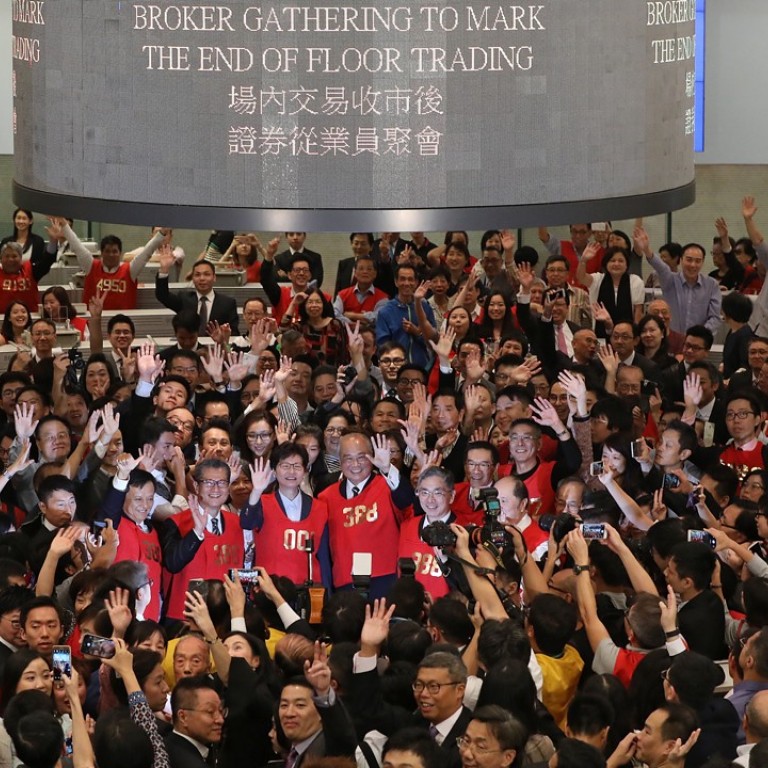
Why did Hong Kong replace our ‘One Share, One Vote’ principle for dual-class stocks?
With all these tech and “new economy” IPOs in Hong Kong, I can’t think of a single, defensible reason for scrapping our “One Share, One Vote” principle.
HK revamps listing rules in battle for global tech giants -- SCMP headline, December 16
This latest attempt by Hong Kong’s stock exchange chief executive Charles Li Xiaojia to destroy shareholder democracy has an offhand way of dismissing his earlier, overly ambitious attempt to do away with all significant listing requirements.
That earlier concept paper in 2015 was only a “straw man”, says this latest concept paper; meaning, I take it, that it was an intentionally false proposal we were meant to knock down, so as to make it easier to introduce the real one.
Oh, thank you, Charles. So kind of you to waste our time. How very thoughtful of you.
But the real one (let’s hope it’s not just another straw man this time) does have one brand new idea: it is to allow listing by “pre-revenue” biotech companies, as long as they have a “minimum expected market capitalisation” of HK$1.5 billion (US$192 million).
I shall ask the obvious question for you: If they are not yet selling anything, leave alone turning any profit, on what basis can the market be “expected” to value them?
Perhaps we could try the old Roman way of dealing with such eventualities. Take a live chicken, cut it open on the spot and then call in a soothsayer to tell you what the entrails forecast. It worked for the Romans apparently.
The new concept paper’s version of this idea is to say there “tends to be” strict regulation of activities undertaken by biotech companies, and this should be enough. If it’s good enough to swallow, then it’s worth at least HK$1.5 billion, you see.
We had an example of such tends-to-be strict regulation only last week, when a doctor at a beauty shop was convicted of manslaughter by administering untested biotech quack remedies. It’s a big industry. Just look at its tsunami of advertisements.
Let’s face it. This town has a weakness for biobabble. Talk a fast line in biotech and the customers will always line up. No one understands a word of it anyway.
And then we get Charles back to his one-track mindset of WVR, or weighted voting rights. Our principle of “One Share, One Vote” is to be abandoned for “new economy” companies. All shareholders are equal, but some will be more equal than others.
Hong Kong can now join the international race for the bottom in listing standards, while the cash-out price of Charles’ share options - remember that Hong Kong Exchanges & Clearing Ltd is a listed company, whose shares are trading near a record - can race for the top.
But I mustn’t spread falsehoods. It is not true that ordinary shareholders will be deprived of all voting rights in WVR companies. As long as their votes don’t matter, they can have a few. Maybe they can butter them and have them for breakfast.
And again, of course, we get no definition of what the “new economy” is. It is “hard to define”, “not necessarily restricted to specific sectors”, “likely to evolve over time” and “the Exchange proposes to publish a guidance letter”.
Any investment banker can find his way round such non-restrictions. WVR will therefore apply to the entire market from now on.
The oddity here is that recent events have made nonsense of the supposed purpose of attracting more technology listings. They have come anyway. There has been a flood of them over the last few months, as high tech, and devoid of earnings, as any mindless follower of investment fashion could want.
It is also worth noting that WVR does not really make a stock more attractive to the professionals. In the US, for instance, both the S&P and the MSCI indices have recently announced they will not accept shares with unequal voting rights.
This matters. The MSCI indices in particular are benchmarks for institutional investors. To have your stock included in any of them is to attract big time investor interest. To be permanently excluded because of your share structure now constitutes a self-induced banishment to second class.
So why do it?
There must be some legitimate reason. I cannot imagine that every corporate chieftain who asks for a WVR listing does it only because he wants to have his cake and eat it too, and is happy to rob his shareholders in the process.
As I say, there must be a defensible reason. But don’t ask me what it is.

